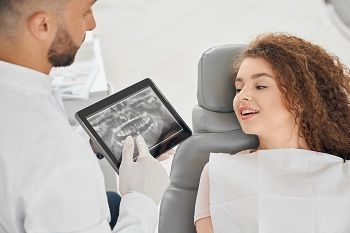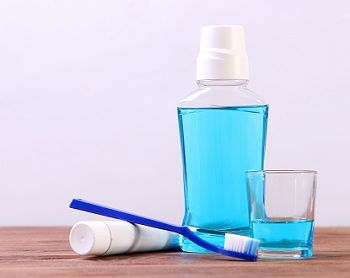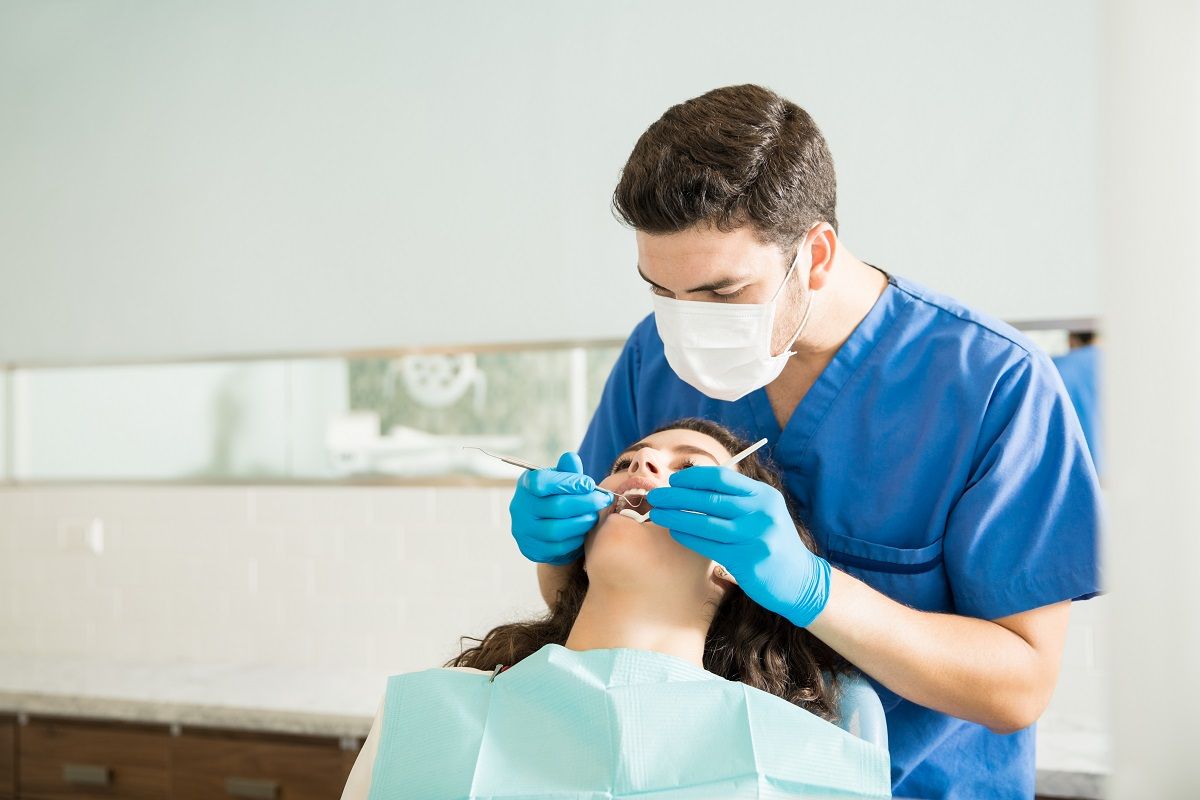Good oral health leads to a good overall state of health. That's why it's imperative to keep your teeth and gums healthy. Preventive dental care is one key element to boost your oral health functioning. It involves the practice of maintaining good oral hygiene with different treatment plans.
Looking after your teeth is essential to keep bacteria under control. Routine dental visits help reveal potential problems even before they emerge. The procedures in preventive care are primarily aimed at preventing enamel wear, tooth cavities, and gum diseases.
Every day a thin film of bacteria known as "plaque" builds up on teeth. Besides affecting teeth' color, it disrupts enamel's function and causes it to wear down. When this protective layer of teeth gets destroyed, it puts you at more risk of dental cavities and tooth decay.
Preventive care is essential for age groups; preventative maintenance is a foundation stone for oral health needs. Read on to learn more about preventive dental care and its best practices.
"Prevention is better than cure; it helps you proactively manage your oral health problems."
What is Preventive Dental Care and What Are its Benefits?
Preventive dental care is routine health care that employs dental exams to scrutinize potential problems or threats. It aims at avoiding health risks by taking adequate measures on time.
Preventive care is the key to preventing issues such as tooth decay, cavities, and gum disease. The benefits of preventative care include the following:
- Preventive care helps clean hard-to-reach areas with professional equipment. Doing so enables you to avoid tooth cavities and tooth decay.
- Plaque and tartar accumulation eventually leads to gum disease. When you have gum disease, it puts you at more risk of bone deterioration. Preventive care helps eliminate plaque and tartar from the mouth and keeps your teeth and gums healthy.
- If you are struggling with bad breath, it's a reminder to consult your dentist. Bad breath is not only unpleasant, but it can be a sign of infection or decay.
- Preventive care catches jaw problems early, even before they emerge. It also helps you save from TMJ (Temporomandibular Joint) disorders and bruxism. These problems can lead to severe tension headaches or jaw misalignment when left unchecked.
- Preventive care saves you money in the long run and treats dental issues on time. They are an excellent investment to prevent dental health issues and are affordable.
Who Needs Preventive Care?
The answer to this question is relatively simple; everyone needs preventive care, whether young or old. From childhood to old age, preventive offers many benefits. Preventive dental care adds more to the life quality of adults. It helps save them from serious health problems by discarding harmful bacteria.
Young children are more prone to cavities and tooth decay, whereas preventive care reduces their prevalence by up to 80%. Adults also need routine checkups to avoid oral diseases and maintain good health.
Best Preventive Dental Care Practices
- Thorough Oral Examination
Your dentist will conduct a complete oral examination when you have a dental appointment. It can include the following:
- Oral Cancer Screening - The dentist will look for potential signs of oral cancer. Oral cancer has a low prevalence rate, but still, some people are affected by it. It is estimated that 1 in 60 men develop oral cancer during their lifetime. However, you can reduce oral cancer mortality if it is diagnosed in its early stages. The dentist will examine your tongue, lips, neck, gums, throat, face, and tissues to see any evidence.
- Diagnostic X-rays - Another element of oral examination includes diagnostic x-rays. The dentist uses x-rays or radiographs to detect cysts, decay, tremor, and bone loss. These are also useful for root and tooth locations.

- Examination of Current Restorations - If you have had crowns, fillings, implants, or any other restoration, the dentist will check their current state. He will remove any possible defects to ensure optimal oral health functioning.
- Evidence of Periodontal Disease - The dentist will look for signs of periodontal disease by examining gums and bone density. It will help reduce the risk of developing periodontal disease.
- Professional Dental Cleaning
Another preventive dental care involves professional dental cleaning. It is common to have a plaque on the teeth' surface. No matter how hard you try, it still stays there despite proper brushing and flossing. Professional dental cleaning is essential when plaque becomes trapped between gums and teeth.
However, it is best to regularly visit your dentist to eliminate plaque from the teeth' surface. The dentist uses specialized tools to remove plaque and tartar to reduce the risk of gum disease.
- Dental Sealants
Some people are more susceptible to tooth cavities and decay than others. Your dentist can recommend dental sealants in such a condition. Applying dental sealants is relatively easy, and it is a quick process, too. Sealants act as a barrier against tooth cavities and protect the teeth. These thin plastic coatings are mainly applied on the chewing surfaces of the back teeth.
Dental sealants are effective for both kids and adults. However, they are specifically helpful for kids because they are more prone to tooth cavities and decay.
- Mouth Guards
A dental mouthguard can save you from trauma or injury if you are a sports player. A dental mouth guard is also considered a preventive practice to protect the mouth. It reduces the danger of broken teeth or damage to the face, lips, jaw, and tongue.
Similarly, if you have bruxism (chronic teeth grinding or clenching), wearing a mouthguard while you sleep can significantly help. It will protect your teeth' enamel and prevent teeth grinding, thereby reducing the need for future dental restorations.
- Fluoride Treatment

Fluoride treatment helps maintain optimal oral health and fortifies the teeth through remineralization. It stops the production of bacteria and prevents tooth decay. It only requires one dental visit and is a budget-friendly treatment.
Having fluoride treatment will reduce the need for future dental procedures. It is highly effective and will protect the enamel of your teeth.
- Home Care Education
Besides recommending preventive treatment, your dentist will instruct you on maintaining optimal oral health. You can take several home care measures to prevent future dental issues. Some of these are enlisted below.
- Maintain good oral hygiene.
- Don't smoke, and take plenty of fluids.
- Use an adequate quantity of fluoride.
- Eat a healthy diet.
- Limit sugary and starchy foods.
- See a family dentist regularly.
What's Your Role in Preventive Dental Care?
Your role in preventive care is of great importance. Good dental habits from early life can reduce the prevalence of certain diseases. These include gingivitis, tooth decay, and periodontal disease. Moreover, it helps you prevent plaque buildup, which significantly disrupts the well-being of teeth. Remember that preventive care starts with you, and here are some basics of maintaining good oral hygiene.
- Master the art of brushing and also convey it to your children. Daily brushing your teeth at least twice with fluoride toothpaste is highly recommended. Adequate brushing with a soft-bristled brush will significantly reduce plaque buildup. Consult your dentist to know the brush and toothpaste best suited to you.
- Use dental floss daily; use it at least once daily to eliminate substances stuck between the teeth.
- An antimicrobial mouthwash helps kill oral bacteria within a few seconds. It also gives added protection against tooth cavities and decay. Use the right mouthwash as instructed by your dentist.
- Acidic foods harm the tooth enamel, so avoid them as much as possible. Also, be cautious when using hard foods. Besides damaging the teeth, they make you more susceptible to a dental emergency.
- Do not smoke and use tobacco products; they increase your risk of dental problems. Also, they disrupt the quality of your breath and can make your teeth fall out in severe cases.
Final Thoughts
Preventive care helps prevent cavities, tooth decay, and other serious health issues. It allows you to be more proactive toward your dental health with regular dental checkups. It also ensures optimal oral health functioning by avoiding major dental complications. Having said so, why not regularly visit a dentist from now on to protect your teeth and gums?
Contact your Pinole dentist, Dr. Azadeh Hosseini, and Dr. Ghazal Hosseini at Top Pinole Dental to learn more about Preventive Dental Care.
Resource:
Tips on Preventing Tooth Decay
*This media/content or any other on this website does not prescribe, recommend, or prevent any treatment or procedure. Therefore, we highly recommend that you get the advice of a qualified dentist or other medical practitioners regarding your specific dental condition*
1500 Tara Hills Dr., Suite 104A, Pinole, CA 94564
Monday – Saturday 8:00 AM to 5:00 PM
